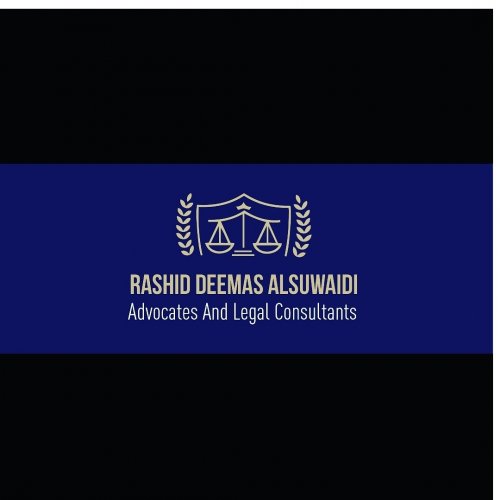Best Collaborative Law Lawyers in Sharjah
Share your needs with us, get contacted by law firms.
Free. Takes 2 min.
Free Guide to Hiring a Family Lawyer
List of the best lawyers in Sharjah, United Arab Emirates
About Collaborative Law in Sharjah, United Arab Emirates
Collaborative Law in Sharjah, United Arab Emirates, represents an innovative approach to resolving disputes, particularly in family law. This form of legal practice involves all parties and their respective lawyers committing to resolving their issues without going to court. The main advantage of Collaborative Law is its emphasis on open communication and cooperative problem-solving, allowing the involved parties to reach a mutually beneficial agreement. In Sharjah, this approach aligns well with the cultural emphasis on community and amicable settlements, conforming to both local legal frameworks and traditional dispute resolution practices.
Why You May Need a Lawyer
There are several situations where you might seek legal assistance with Collaborative Law in Sharjah:
- Divorce or Separation: Collaborative Law can be beneficial for couples who wish to separate amicably and decide on issues like custody, division of assets, and support without contentious litigation.
- Family Disputes: It helps families resolve disputes regarding inheritance, family business, or other personal conflicts collaboratively and peacefully.
- Business Conflicts: Business partners can resolve their disputes through collaboration instead of facing litigation which may damage their relationship and business reputation.
- Multi-National Disputes: In Sharjah, where many expatriates live and work, Collaborative Law offers a culturally sensitive way to resolve international disputes that respect different legal systems.
Local Laws Overview
In Sharjah, the legal framework supports alternative dispute resolution methods, including Collaborative Law. The process requires signing a participation agreement outlining the roles of each party and their lawyers, confirming the commitment to reach an agreement without litigating. The UAE Personal Status Law often governs family law matters, with Sharia principles applied to many aspects of personal and family conflicts. Collaborative Law aligns with these practices by promoting negotiations based on mutual respect and consent, thus respecting both legal and cultural contexts.
Frequently Asked Questions
What is Collaborative Law?
Collaborative Law is a legal process that encourages cooperative negotiations and settlements in legal disputes, avoiding the need for court involvement.
Is Collaborative Law legally recognized in Sharjah?
Yes, it is recognized as an alternative dispute resolution method and is supported by local laws that encourage non-litigation resolution strategies.
Can I use Collaborative Law for divorce in Sharjah?
Yes, Collaborative Law is often used for divorce cases, helping couples reach amicable agreements on matters like custody and asset distribution without hostile courtroom battles.
Do both parties need lawyers in Collaborative Law?
Yes, each party must have their own collaboratively trained lawyer to ensure fair negotiation and compliance with the legal process.
What happens if an agreement cannot be reached?
If there is no agreement, the collaborative process is terminated, and parties may need to seek alternative resolution methods, including litigation.
How long does the Collaborative Law process take?
The duration varies depending on the complexity of the issues and the willingness of parties to negotiate. However, it is typically faster than traditional litigation.
Is Collaborative Law confidential?
Yes, all discussions and negotiations in the process are confidential, encouraging openness and honesty between parties.
What costs are associated with Collaborative Law in Sharjah?
While costs can vary, Collaborative Law may be more cost-effective compared to lengthy litigation, as it often requires fewer court preparations and appearances.
What is the role of a collaborative lawyer?
Collaborative lawyers facilitate constructive communication, ensure legal rights are protected, and guide the negotiation process towards a fair settlement.
Can Collaborative Law be used for business disputes?
Yes, it is suitable for resolving business disputes, particularly where maintaining business relationships is essential.
Additional Resources
For those seeking more information or assistance with Collaborative Law in Sharjah, consider reaching out to the following:
- Sharjah Department of Family Development: Provides resources and support for family-centric legal issues.
- UAE Ministry of Justice: Offers guidance on the legal framework surrounding alternative dispute resolution methods.
- Local Legal Practices: Many law firms specializing in family and business law in Sharjah provide collaborative law services.
- Expat Community Forums: Online forums can be a helpful conversational resource for expatriates seeking community advice.
Next Steps
If you need legal assistance in Collaborative Law, start by identifying your needs and goals for the resolution process. Contact a lawyer specializing in Collaborative Law to discuss your case and understand the potential pathways for resolution. The lawyer will guide you through the collaborative process, ensuring that both legal rights and personal values are respected. Scheduled consultations with various lawyers can also be useful in selecting the right professional to assist you. Always remember that preparation, openness, and willingness to negotiate are key to a successful collaborative process.
Lawzana helps you find the best lawyers and law firms in Sharjah through a curated and pre-screened list of qualified legal professionals. Our platform offers rankings and detailed profiles of attorneys and law firms, allowing you to compare based on practice areas, including Collaborative Law, experience, and client feedback.
Each profile includes a description of the firm's areas of practice, client reviews, team members and partners, year of establishment, spoken languages, office locations, contact information, social media presence, and any published articles or resources. Most firms on our platform speak English and are experienced in both local and international legal matters.
Get a quote from top-rated law firms in Sharjah, United Arab Emirates — quickly, securely, and without unnecessary hassle.
Disclaimer:
The information provided on this page is for general informational purposes only and does not constitute legal advice. While we strive to ensure the accuracy and relevance of the content, legal information may change over time, and interpretations of the law can vary. You should always consult with a qualified legal professional for advice specific to your situation.
We disclaim all liability for actions taken or not taken based on the content of this page. If you believe any information is incorrect or outdated, please contact us, and we will review and update it where appropriate.










